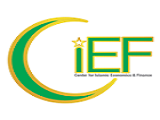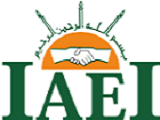Optimizing The Role of ZISWAF in Empowering Community Economies: Challenges, Opportunities and Strategies for Increasing Public Awareness
Abstract
This research aims to explore the role of Zakat, Infaq, Sadaqah, and Waqf (ZISWAF) as philanthropic instruments in promoting economic empowerment within communities. The study seeks to analyze the level of public awareness regarding the potential of ZISWAF to foster economic growth and improve community welfare. The study adopts a library research approach, synthesizing findings from existing literature related to the definition, concept, and implementation of ZISWAF across different contexts. By reviewing and analyzing these sources, the study evaluates the relationship between public awareness of ZISWAF and its impact on economic empowerment. The findings reveal that public awareness of ZISWAF plays a crucial role in determining the effectiveness of its impact on economic empowerment. A comprehensive understanding of ZISWAF is shown to be vital for its successful implementation. However, the research also highlights several challenges hindering its optimal use such as inadequate education on ZISWAF, regulatory barriers, and insufficient coordination among relevant stakeholders. These obstacles limit the potential of ZISWAF in fully contributing to economic empowerment. The study provides several recommendations for overcoming the challenges identified. It suggests strengthening educational initiatives to increase public knowledge about ZISWAF, encourage cross-sectoral collaboration between different organizations and sectors, and leverage technology to enhance the delivery and impact of ZISWAF initiatives. These measures aim to optimize the role of ZISWAF in supporting community economic empowerment and improving overall welfare. This research offers a significant contribution to the understanding of ZISWAF's potential as a philanthropic tool for economic empowerment. It highlights the importance of public awareness and proposes strategies to enhance the effectiveness of ZISWAF in promoting community welfare. The study’s findings serve as a valuable resource for policymakers, practitioners, and researchers aiming to optimize ZISWAF's impact on economic growth and community development.
Keywords
Full Text:
PDFReferences
Ahmad Fauzy Bahitsul, d. (2021, September). Distingsi Pemberdayaan Masyarakat Melalui ZISWAF dalam Meningkatkan Ekonomi Masyarakat. MAZAWA, 3(1), 39.
Ali, M. D. (2012). Sistem Ekonomi Islam Zakat dan Wakaf. Jakarta: UI-Press.
Al-Kabisi, M. A. (2004). Hukum Wakaf; Kajian Kontemporer pertama dan terlengkap tentang fungsi dan pengelolaan Wakaf serta penyelesaian atas sengketa wakaf. Jakarta: IIMaN Press dan Dompet Dhuafa Republika.
Amiruddin, S. &. (2019). Wakaf Tunai dan Pemberdayaan Ekonomi Masyarakat. Al-Mashrafiyah: Jurnal Ekonomi, Keuangan, Dan Perbankan Syariah, 3(1), 43.
Anowarul Arif Khan, d. (2017). Role of Community Radio for Community Development in Bangladesh. the International Technology Management Review, 6(3), 94-102.
Basuki. (2021). Distribution of Zakat in Poverty Treatment of Muhammadiyah Citizens in Klaten District (Case Study: Lazizmu Regional Leader of Muhammadiyah Klaten Regency). International Journal of Economics, Business and Accounting Research (IJEBAR), 5(1), 295.
Ditzawa. (2023, Agustus 23). Potensi Mencapai 327 T, Ini Tiga Fokus Kemenag dalam Pengembangan Zakat. Retrieved November 29, 2023, from Kementerian Agama Republik Indonesia: https://kemenag.go.id/nasional/potensi-mencapai-327-t-ini-tiga-fokus-kemenag-dalam-pengembangan-zakat-LobJF
Ekaningsih, S. d. (2020). Potensi Zakat, Infaq, Shodaqoh Pada Badan Amil Zakat Nasional (Baznas) Di Kabupaten Banyuwangi. Inferensi, 7(1), 25.
Faturrohman, T. (2006). Wakaf dan Usaha penangulangan kemiskinan tinjauan hukum Islam dan peraturan perundang-undangan di Indonesia (Studi kasus pengelolaan Wakaf di Kabupaten Bandung). Disertasi Doktor Fakultas Hukum Universitas Indonesia.
Hafidhuddin, D. (2002). Zakat dalam perekonomian modern. Gema Insani.
Ilham Alivian, d. (2023, Mei). Faktor Rendahnya Kesadaran Masyarakat Dalam Membayar Zakat di Indonesia. Jurnal Ekonomi Islam Fakultas Agama Islam UHAMKA, 14(1), 63-77.
lexy, M. J. (2013). Metode Penelitian Kualitatif (Cetakan 13 ed.). Bandung: Remaja Rosdakarya.
Mardani. (2012). Fiqh ekonomi syariah : fiqh muamalah. Retrieved November 30, 2023, from Kencana Prenada Media: https://www.google.co.id/books/edition/Fiqh_Ekonomi_Syariah/ncDvDwAAQBAJ?hl=id&gbpv=1
Mhd.Ali, N. (2006). Zakat Sebagai Instrumen dalam Kebijakan Fiskal. Jakarta: PT. Raja Grafindo Persada.
Nur.H.R. (2018). Efektivitas Pendayagunaan Dana Zakat, Infaq, Shadaqah Perspektif Maqashid Syariah. Retrieved from file:///C:/Users/hp/Downloads/NASKAH PUBLIKASI_14423210.pdf
Nurhasanah, S. &. (2018). MAKSIMALISASI POTENSI ZAKAT MELALUI PENINGKATAN KESADARAN MASYARAKAT. JEBI (Jurnal Ekonomi Dan Bisnis Islam), 3(2), 185–194.
Putri, C. A. (2023, Juli 18). Bukti di RI yang Kaya Makin Kaya, yang Miskin Makin Miskin! Retrieved Januari 4, 2024, from CNBC Indonesia: https://www.cnbcindonesia.com/news/20230717181749-4-455116/bukti-di-ri-yang-kaya-makin-kaya-yang-miskin-makin-miskin
Sabiq, S. (1986). Fikih Sunnah (Buku 14 ed.). Surabaya: Al Ma’arif.
Syafiq, A. (2018). Peningkatan Kesadaran Masyarakat Dalam Menunaikan Zakat, Infak, Sedekah, dan Wakaf (ZISWAF). Badan Pengawas Mahkamah Agung Republik Indonesia, 308.
Waluya, H. &. (2019). Peran ZISWAF Dalam Pemberdayaan Masyarakat Miskin Di Provinsi Banten (Studi Kasus Program Hibah Rumah Siap Huni Koperasi Syariah Benteng Mikro Indonesia. Jurnal Ekonomi Islam Al-Infaq, 10(1), 1-12.
Yuliasari, P. (2020). he Duality of Community Development and Community Relations Functions of Corporate Social Responsibility (CSR) Program: a Case Study of Oil and Gas Company in SubangWest Java. Masyarakakat: Jurnal Sosiologi, 25(2), 346.
DOI: http://dx.doi.org/10.24042/ijebi.v10i1.20760
Refbacks
- There are currently no refbacks.
Copyright (c) 2025 Muhammad Ash-Shiddiqy, Mohamad Sobirin, Muhammad Ahalla Tsauro

This work is licensed under a Creative Commons Attribution-ShareAlike 4.0 International License.
Ikonomika : Jurnal Ekonomi dan Bisnis Islam is a Journal of Islamic Economics and Business, Published by the Faculty of Islamic Economics and Business at UIN Raden Intan Lampung Indonesia. This work is licensed under a Creative Commons Attribution-ShareAlike 4.0 International License.






11.png)

.png)
1.png)


.png)
1.png)
.png)
.png)
.png)
2.png)
.png)
.png)
.png)
2.png)
5.png)